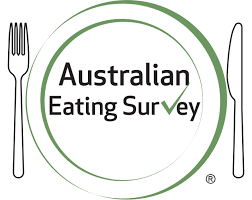NEW!! The Healthy Eating Quiz+
The HEQ+ is the digital assessment tool that gives clinicians instant, evidence-based insights into eating habits and health behaviours, without adding time or complexity to your workflow. Whether you're managing chronic conditions, supporting preventative care, or tailoring nutrition advice, HEQ+ helps you make smarter decisions, faster.
Seamlessly integrated, clinically validated, and built for real-world practice, HEQ+ is the upgrade your clinic has been waiting for.
The Healthy Eating Quiz+ (HEQ+) is a brief and easy to use, diet quality assessment tool that is designed to provide feedback on how individual intake aligns with foods recommended in the five food groups in the Australian Dietary Guidelines.
The quiz focuses on the variety of foods within each of the food groups that you usually have each week. Upon completion a personalised report is provided to suggest areas which could be improved.
The survey takes around 10 minutes to complete online and the individual results and report will appear instantly on completion. The report can be viewed online, printed or saved.
The Science behind the Healthy Eating Quiz (also known as the Australian Recommended Food Score)
The HEQ is adapted from an existing dietary assessment tool; the Australian Recommended Food Score (ARFS). The Australian Recommended Food Score has been previously validated in adults, children and adolescents, and toddlers.
Led by Professor Clare Collins, the HEQ and associated diet quality tools, including the Australian Eating Survey have undergone rigorous evaluation with the results of this research published in many high quality scientific journals.
Validity and reliability of the Australian Recommended Food Score (ARFS)
Comparative Validity
Toddler
- Burrows TL, Collins K, Watson JF, Guest M, Boggess MM, Hutchesson MJ, Rollo M, Duncanson K, Collins CE. Validity of the Australian Recommended Food Score as a diet quality index for Preschoolers. Nutrition Journal 2014, 13:87. http://www.ncbi.nlm.nih.gov/pubmed/?term=PMID%3A+25178263
Children
- Marshall S, Watson J, Burrows T, Guest M, Collins C. The development and evaluation of the Australian child and adolescent recommended food score: a cross-sectional study. Nutr. J. 2012;11: 96
Adults
- Collins CE, Burrows TL, Rollo ME, Boggess MM, Watson JF, Guest M, Duncanson K, Pezdirc K, Hutchesson MJ. The comparative validity and reproducibility of a diet quality index for adults: the Australian Recommended Food Score. Nutrients 2015, 7(2), 785-798. http://www.ncbi.nlm.nih.gov/pubmed/?term=PMID%3A+25625814
Biomarker - Carotenoids
Adults
- Ashton, L.; Williams, R.; Wood, L.; Schumacher T, Burrows T, Rollo M, Pezdirc K, Callister R, Collins C. (2017) Comparison of Australian Recommended Food Score (ARFS) and Plasma Carotenoid Concentrations: A Validation Study in Adults. Nutrients, 9, 888
- Ashton L, Pezdirc K, Hutchesson M, Rollo ME, Collins CE (2017) Is Skin Coloration Measured by Reflectance Spectroscopy Related to Intake of Nutrient-Dense Foods? A Cross-Sectional Evaluation in Australian Young Adults. Nutrients. 10(1):11. Impact factor: 4.196, 201
The Australian Recommended Food Score has been used in >30 research studies to assess the diets of groups of individuals and to measure the effect of programs and interventions to change dietary intake.
The Australian Eating Survey (AES)®

For a more in-depth analysis of your dietary patterns, including intakes of energy-dense, nutrient-poor foods, also called discretionary or non-core foods, consider trying the Australian Eating Survey (AES).
The AES gives an analysis of your usual food patterns and generates a comparison of nutrient intake to Australian nutrient recommendations, including protein, carbohydrate, fat, dietary fibre and 13 vitamins and minerals.

